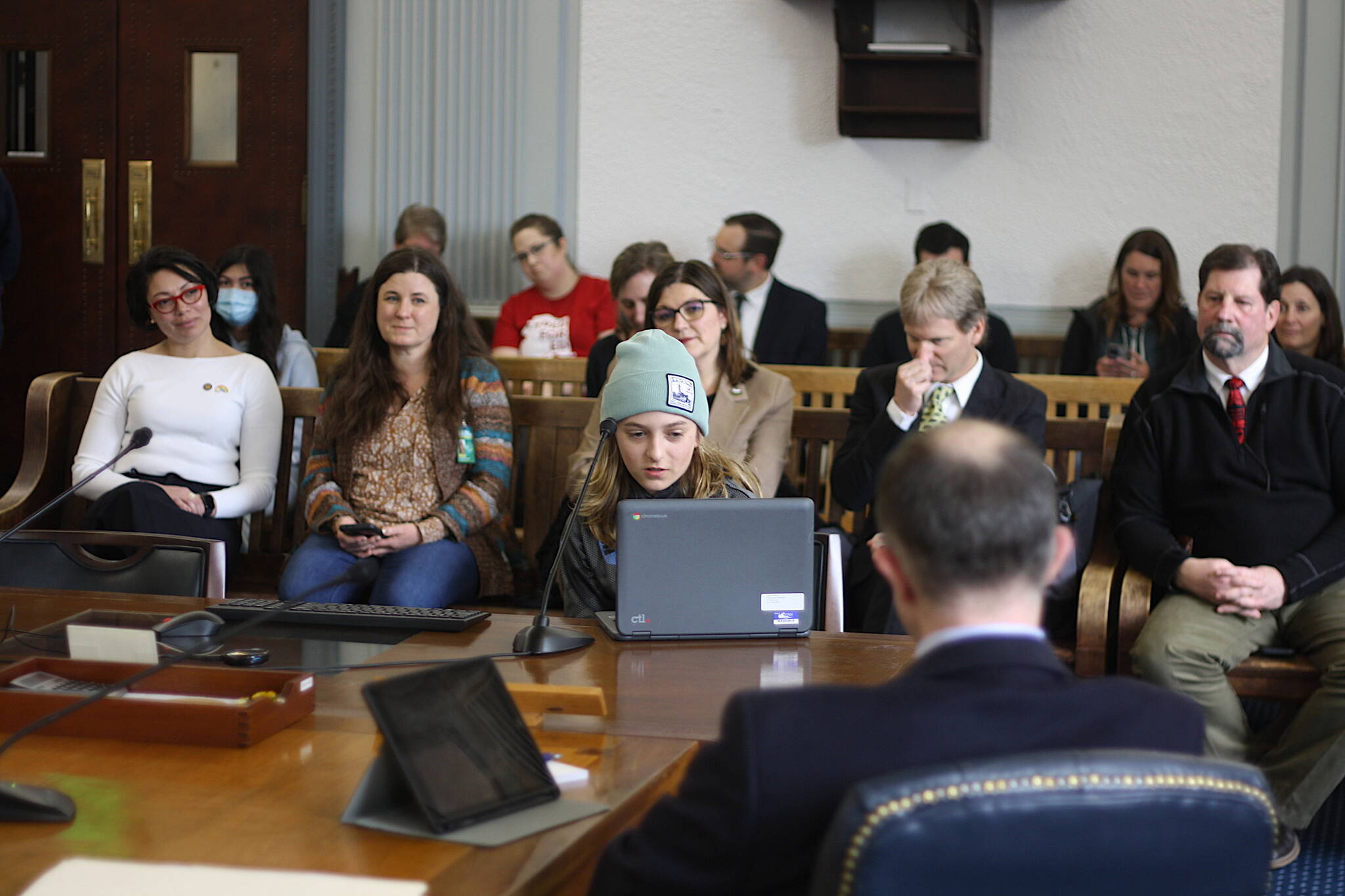Somebody’s going to pay the bill if there’s an education funding increase and the state lawmakers now considering the proposal are asking who that’s going to be.
The merits (or lack thereof) of an increase were the focus of the Senate Education Committee earlier this session, but the emphasis shifted Thursday when the Senate Finance Committee spent most of the day giving its first consideration to Senate Bill 52. The bill increases the current Base Student Allocation (BSA) of $5,960 by $1,000 next year and $348 the following year, and includes some additional accountability requirements for school districts.
About 75 people signed up to testify in person and online Thursday — with all but a couple supporting the bill — and hundreds more residents have offered written testimony that also mostly favor the increases. Several local youths were among those appearing in person, including Juneau Montessori School student Caleb Schane, 13, who said without the increase activities such as their school play and a class trip participants have raised money for may not be possible.
“Our schools are also losing teachers,” she said. “We currently have a class of four different grades all together because one of the teachers left during COVID and it is extremely hard to find a teacher who is trained to teach at a Montessori classroom. And why should they come to Alaska when there is better pay and benefits in other places?”
Meanwhile, the Republican-led House majority last week voted in favor of a smaller one-time BSA increase of about $860 for the coming school year, arguing that leaves time to debate a long-term increase during next year’s session.
As with other aspects of the budget, a committee of House and Senate members will meet toward the end of this year’s session to draft a final compromise budget — which Gov. Mike Dunleavy, whose proposed budget has no BSA increase, will have line-item veto power over.
Most of the budget scenarios result in a sizeable deficit lawmakers will have to address by tapping into reserve funds and/or making other adjustments. That promoted a series of questions Thursday from Sen. Bert Stedman, a Sitka Republican who co-chairs the Senate Finance Committee.
“Did the Education Committee have any discussions about where this $430 million is going to come from?” he asked Löki Tobin, an Anchorage Democrat who chairs that committee, referring to the two-year cumulative cost of the BSA increase.
Tobin said there was “no discussion at the table how to fund this particular piece of legislation” since that’s the finance committee’s purview.
Another question Stedman asked a couple of school district superintendents their preference if the choice is either a BSA increase or a PFD of about $2,700 (instead of a $1,300 PFD he and other Senate leaders say is needed to balance the existing budget). Both favored the extra education funding.
“Education directly impacts every single person in our community and it’s also an investment in our future,” said Jamie Burgess, superintendent of the Nome School District.
But an opposing opinion was expressed by Francesca Allegrezza, an Anchorage resident testifying online, who noted statewide standardized test scores in math and reading have been deemed unacceptable, and “stealing PFDs” to increase funding won’t solve the problem.
“Some families rely on their PFDs to support basic living expenses,” she said. “This will be a huge tax levy on families. Investing in a failing system is investing in failure.”
Committee members also asked some tough questions about failing to increase BSA funding significantly. Heidi Teshner, acting commissioner of the state’s Department of Education and Early Development, was vague when asked by Stedman if she considers Dunleavy’s proposal of no increase an adequate amount of funding.
“I don’t know if there’s a right answer for every district,” she said. “The amount is going to vary.”
Teshner acknowledged any “any kind of increase, $100 or more, would be a start,” and repeated the $100 figure enough times subsequently she was asked if that was a target figure sought by the administration. She called it both an arbitrary example, but also one that takes over state needs into account.
“Taking into consideration (available) revenue I’m saying a minimum $100 BSA increase,” she said. “It should be more.”
Numerous school administrators and teachers said an increase — particularly a significant and ongoing one — is needed so districts can draft their spending plans responsibly. Brian Holst, a Juneau Board of Education member, said due to uncertainty the district is already making cuts in its proposed budget for next year including library assistants, support for science and math instruction, teacher training, and special education.
“We need about $600 just to make it look like last year and we need $1,200 if we’re going to do the things we want to do,” he said. “We want to reduce the class size at early years. We are dissatisfied as you are with our ability to teach kids to read.”
• Contact Mark Sabbatini at mark.sabbatini@juneauempire.com

